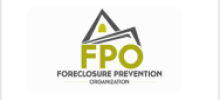
We believe every person should have a voice in our climate-resilient future at every step, from access to resources to decision-making in policy. We lead with community at the heart of our work, convening the voices of disaster-impacted leaders and community-based organizations working to reimagine how emergency preparedness, recovery, and resilience strategies can best support underserved communities.
We’re dedicated to creating an equitable, climate-resilient future for all Oregonians. By putting our focus on communities most at risk at the center of our work, we amplify the voices of leaders in our community that are eager to build a more effective disaster resilient system that works for all. We believe that by working together, we can ensure every person has a voice in shaping our shared future.
We address disaster resilience in our state by centering communities most at risk and recognizing the barriers that exist. Oregon’s Climate and Health 2022 report highlights the growing health risks of climate change in our state and how climate disasters disproportionately impact working-class communities by exacerbating existing socioeconomic and health disparities. These inequalities result in communities living in areas with greater risk of harm, having less resources to prepare for and recover from disasters and experiencing challenges accessing recovery services.
We do this work through coalition-building with a wide array of government entities, fellow nonprofits, and communities across Oregon. Our Disaster Resilience Learning Network brings 32 organizations across our state to the decision-making table, ensuring that communities can be a part of the planning - before, during, and after disasters. We value a people-centered approach to mitigating the harms of disasters in Oregon. When climate disasters happen, the people living in a community know best how to respond and define local resilience. Through this work, United Way:
- Builds support statewide by connecting and convening nonprofits, leaders, government and funders.
- Invests in innovations to support community-centered solutions.
- Stewards culturally-rooted practices in disaster resilience, elevating leaders and their self-efficacy, mental health and wellbeing as forms of resistance and liberation.
- Advocates to ensure all people have access to linguistically inclusive, culturally relevant, lifesaving disaster preparedness resources.




